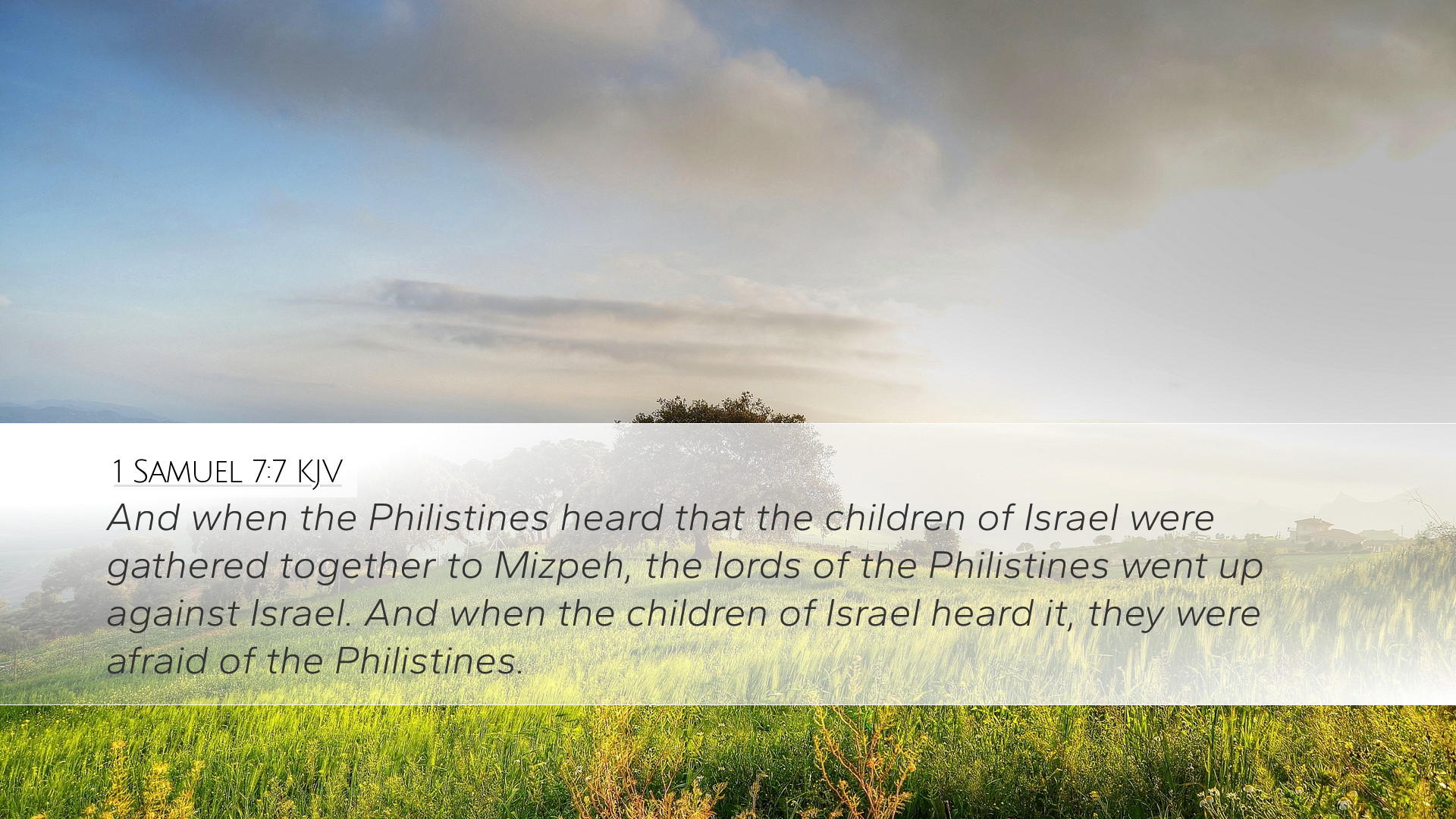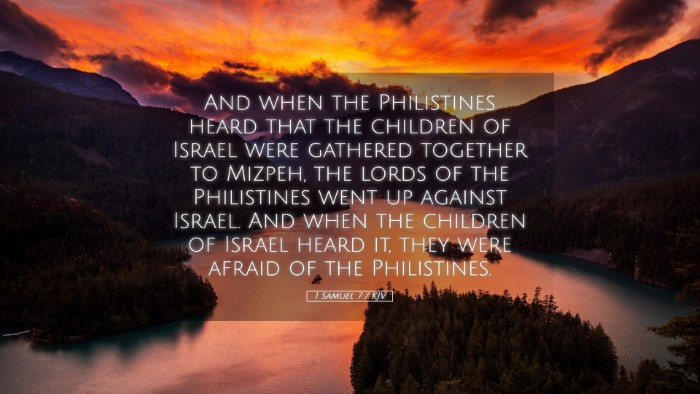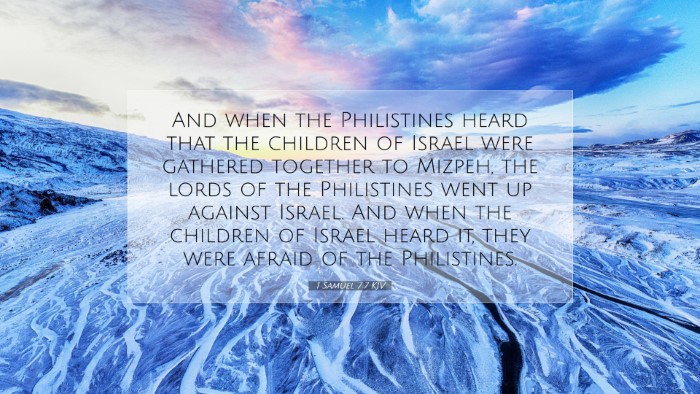Commentary on 1 Samuel 7:7
Verse: "And when the Philistines heard that the children of Israel were gathered together to Mizpeh, the lords of the Philistines went up against Israel: and when the children of Israel heard it, they were afraid of the Philistines." (1 Samuel 7:7)
Contextual Overview
This verse captures a significant moment in Israel's history, reflecting their vulnerability and the tension between the Israelites and the Philistines. The gathering at Mizpeh was a pivotal point where Israel sought divine intervention through repentance and prayer, yet they faced the real threat of the Philistine army. The fear of the Israelites is palpable, indicating their awareness of the Philistines' might and their own spiritual inadequacies.
Theological Insights
- Fear as a Response: As noted by Albert Barnes, the fear of the Israelites highlights a natural human response to perceived threats. It serves as a reminder that, despite their desire to return to God, they are still acutely aware of their frailty.
- Divine Assistance: Matthew Henry emphasizes that their fear is countered by their hope in divine assistance. This situation showcases the power dynamics at play, where human strength is contrasted against the omnipotence of God.
- The Role of Repentance: Adam Clarke points out that the gathering at Mizpeh was not merely a show of strength, but a collective act of repentance. This illustrates a foundational principle in the biblical narrative: genuine repentance often precedes divine intervention.
Historical Context
The historical backdrop of 1 Samuel presents a tumultuous period for Israel, marked by their struggle against the Philistines, who were formidable enemies. The setting at Mizpeh was significant as it was a place where Israel often gathered for prayer and deliberation. The Israelites' fear upon hearing of the Philistines’ approach underscores their need for God’s protection and guidance.
Philistine Threat
The constant threat posed by the Philistines represents the ongoing spiritual and physical struggles faced by the Israelites. Barnes elaborates that the Philistines were aggressive and organized, making them a formidable challenge for a nation that had frequently turned away from God.
Application for Today
- Understanding Fear: Fear is a natural human emotion, particularly in the face of overwhelming circumstances. The biblical narrative does not shy away from depicting human emotions, encouraging believers to bring their fears before God.
- Gathering for Prayer: The assembly at Mizpeh serves as an important model for corporate prayer. It exemplifies the power of community in seeking God during crises. Pastors and church leaders can draw from this practice to encourage collective supplication.
- Importance of Repentance: The correlation between repentance and deliverance is a timeless principle. For theologians and scholars, this verse highlights the necessity of seeking God’s mercy before expecting His aid, emphasizing that spiritual health is vital for experiencing divine intervention.
Conclusion
In 1 Samuel 7:7, the intricate interplay of fear, faith, and divine reliance is prevalent. This commentary synthesizes insights from Matthew Henry, Albert Barnes, and Adam Clarke, providing a comprehensive interpretation for pastors, students, and scholars. The events at Mizpeh remind us of our constant need for God’s guidance, particularly in times of distress. It emphasizes the necessity of repentance—a theme as relevant today as it was in ancient Israel.


